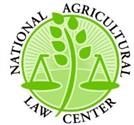Recent collisions involving cattle on Ohio roadways raise the question of who is liable when a farm animal causes a roadway accident? Ohio’s “animals at large law” helps answer that question. It’s an old law that establishes a legal duty for owners and keepers of farm animals to contain their animals. The law states that an owner or keeper shall not permit their animals to run at large “in the public road, highway, street, lane, or alley, or upon unenclosed land.” But as with many laws, the answer to the question of “who’s liable” under the law is “it depends.” Here’s how the law works.
The law applies to both owners and “keepers.” The animals at large law places responsibility on both the owners and the “keepers” of the animals. The reference to “keepers” can expand the duty to someone other than the animal owner. Ohio courts have interpreted the “keeper” language to include a person “who has physical care or charge” of the animal or has “some degree of management, possession, care, custody or control” over the animal. Whether someone is a “keeper” is a fact specific determination made on a case-by-case basis.
Animals that must be contained. Several years ago, Ohio legislators added poultry to the list of animals an owner must prevent from running at large. The full list of animals an owner or keeper must contain now includes horses, mules, cattle, bison, sheep, goats, swine, llamas, alpacas, and poultry.
The law creates both civil and criminal liability. There are two potential outcomes toviolating the animals at large law. The first is civil liability for “negligently permitting” animals to run at large. The owner or keeper who does so is responsible for all damages resulting from injury, death, or loss to a person or property caused by the animal. The second is criminal liability. An owner or keeper who “recklessly” permits the animals to run at large can be charged with a fourth degree misdemeanor.
An owner’s negligent conduct creates civil liability. An owner can be liable for “negligently permitting” animals to run at large, but what does “negligently permitting” mean? Courts have answered this question by stating that the law requires “negligent conduct” by the owner or keeper and that failing to exercise “ordinary care” to contain animals would be negligent conduct. As an example, a court determined that an owner who leaned a gate against a barn opening without fastening the gate to the barn or to any fence posts did not exercise ordinary care to contain his cattle. But the law allows an owner to rebut the presumption that the animals were out because of the owner’s negligent conduct. An owner can offer proof of “ordinary care” taken to contain the animal, such as maintaining fences, locking gates, or checking animals regularly. If the owner had exercised reasonable care and the animals escaped for other reasons, such as being spooked by a storm or a gate left open by someone else, the owner might not be liable for the animals running at large. Whether the owner or keeper “negligently permitted” the escape would be a fact specific determination, made on a case-by-case basis.
Reckless conduct can result in criminal charges. In the example above, the court determined that the owner who merely leaned a gate up against the barn opening behaved “recklessly.” Legally, recklessness is acting with complete disregard to the consequences. Reckless behavior can lead to a criminal charge against the animal owner, with a maximum jail sentence of 30 days and a fine of up to $250.
Reducing liability risk under the animals at large law
- Regular management practices. In the court cases that apply Ohio’s animals at large law, the owner or keeper’s management practices are critically important to a liability determination. Animal owners and keepers can reduce liability risk by following routine management practices and documenting those practices, which include:
- Regularly checking and maintaining fences.
- Locking gates.
- Inspecting and maintaining stalls and similar enclosures.
- Checking and counting animals regularly, and immediately after a storm or similar event.
- Installing cameras.
- Training employees to follow management practices.
- The fence matters. It’s also important to build a sufficient fence. OSU Extension offers helpful resources on fencing in this video on fencing systems by Educator Ted Wiseman and this article on common fencing mistake posted by the OSU Sheep Team. Be aware that another Ohio law requires a new boundary line fence for livestock to be a certain type of fence. Ohio’s “partition fence law” requires a new boundary line fence for containing livestock to be:
“a woven wire fence, either standard or high tensile, with one or two strands of barbed wire located not less than forty-eight inches from the ground or a nonelectric high tensile fence of at least seven strands and that is constructed in accordance with the United States natural resources conservation service conservation practice standard for fences, code 382.” If adjacent owners agree in writing, a new line fence to contain livestock can also be a barbed wire, electric, or live fence.
- Insurance and business entities. Insurance is necessary risk management tool for farm animal owners and keepers. It’s important to review all animals and animal activities with an insurance provider and ensure adequate liability coverage. In some situations, using a separate business entity like a Limited Liability Company might be helpful for liability purposes. Animal owners and keepers should consult with insurance and legal advisors to determine individual insurance and legal needs.
Ohio’s animals at large law is in Ohio Revised Code Chapter 951. Ohio’s partition fence law is in Ohio Revised Code Chapter 971.

 It’s time for another roundup of legal questions we’ve been receiving in the Agricultural & Resource Law Program. Our sampling this month includes registering a business, starting a butchery, noxious weed liability in a farm lease situation, promoting local craft beer at a farmers market, herd share agreements, and agritourism’s exemption from zoning. Read on to hear the answers to these questions from across the state.
It’s time for another roundup of legal questions we’ve been receiving in the Agricultural & Resource Law Program. Our sampling this month includes registering a business, starting a butchery, noxious weed liability in a farm lease situation, promoting local craft beer at a farmers market, herd share agreements, and agritourism’s exemption from zoning. Read on to hear the answers to these questions from across the state.

